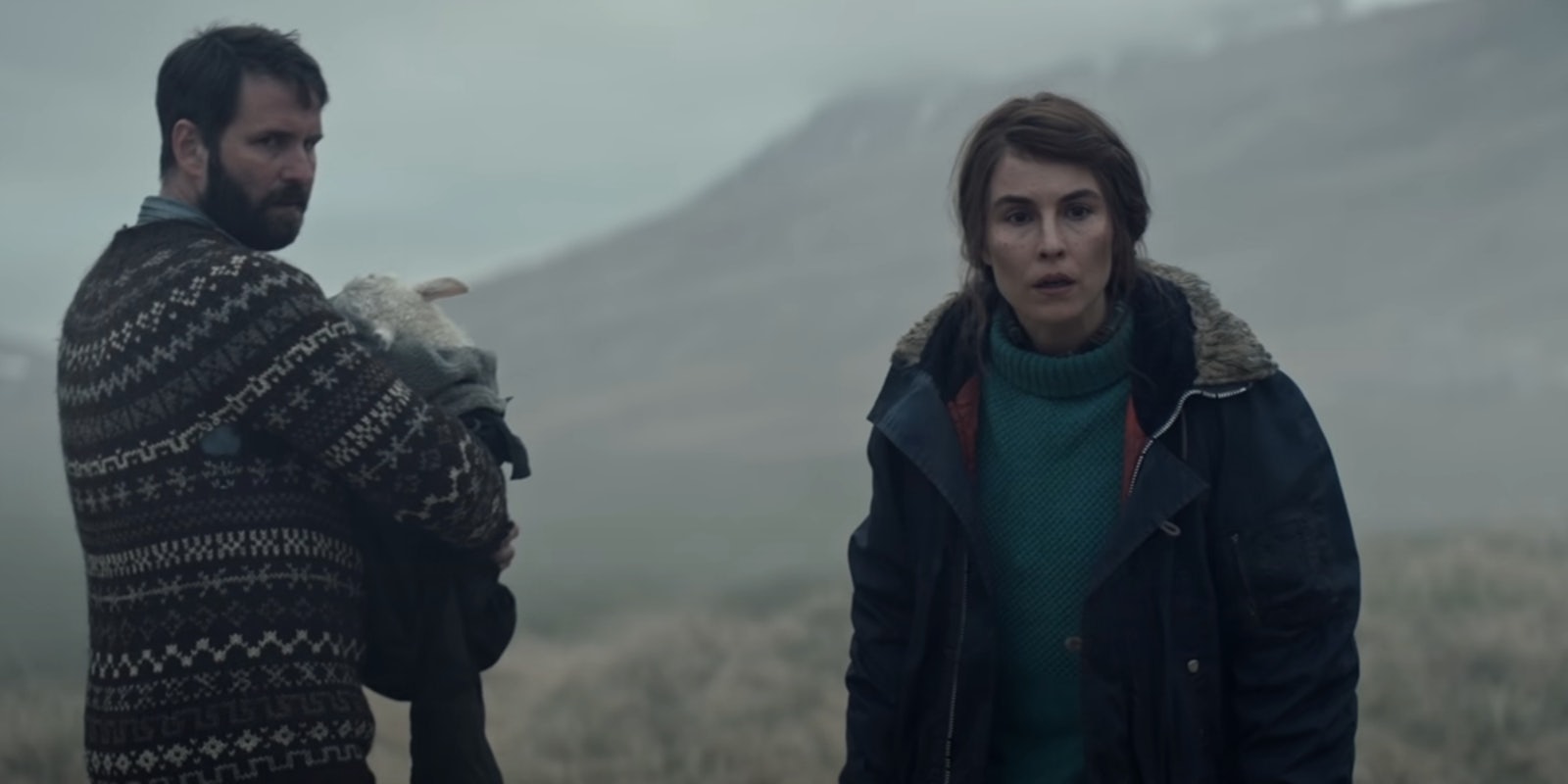The found family genre gets an odd little addition with Lamb, the debut feature from director Valdimar Jóhannsson. It’s one of those films people are going to take pains to “explain” or “solve,” mostly because of its central conceit. But this isn’t that kind of movie.
Director: Valdimar Jóhannsson
The debut feature from Icelandic filmmaker Valdimar Jóhannsson is promising but also frustrating.
Maria (Noomi Rapace) and Ingvar (Hilmir Snaer Gudnason) live on an isolated sheep farm in Iceland, along with a dutiful sheepdog and pensive cat. In early scenes, we see them go about their daily routine, the silence between them appearing first as a byproduct of the physical work, but then as something deeper. Their routine is upended after one sheep gives birth to what we eventually see is a lamb-human hybrid. Maria and Ingvar are not fazed by this reveal; it’s inferred that they lost a child named Ada, so they give this anomaly the same name, to the dismay of an increasingly distressed ewe.
Around the time Maria places a flower crown on Ada, I wondered if we’re supposed to be cracking up over this child, which is an impressive feat of practical and special effects. It seems like we’re given permission when Ingvar’s wayward brother, Pétur (Björn Hlynur Haraldsson), shows up at the farm and, upon seeing Ada, says: “What the fuck is this?”
Jóhannsson doesn’t let that vibe take over, though; from the very first shot, there’s an undercurrent of dread. Unfortunately, once we finally see what that is, the film is essentially over. After Lamb had its U.S. premiere at Fantastic Fest this weekend, Jóhannsson told the audience that Icelandic folktales were a big influence on the film and are just part of the culture in Iceland. The influence of his mentor, Hungarian director Béla Tarr (who is also an executive producer), is felt in the naturalistic wide shots and pacing.
The animal acting is superb (I kind of wanted to see more of it), and the film looks great, but the story never quite comes together. We’re left wondering about Ada’s origin, or whether there are other Adas. Lamb hits a lot of the A24 beats—folklore, grief, mythology, parenthood—without expanding much on them. Jóhannsson has been vocal about Lamb not being a horror movie, but it struggles to figure out what it is, leaving us with symbols instead of narrative.



